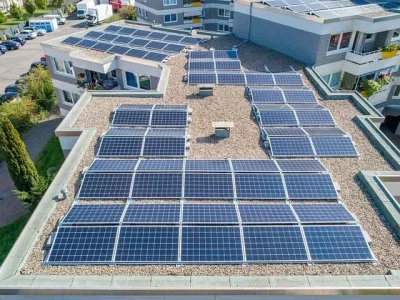Biogas Tax Credit Finalized, Supporting RNG Growth

The biogas industry achieved a significant milestone with the finalization of the Investment Tax Credit (ITC), incorporating favorable provisions for Renewable Natural Gas (RNG). This policy breakthrough is expected to spur investments in biogas and RNG projects across the United States, advancing both economic growth and environmental sustainability.
Understanding the Biogas Investment Tax Credit
The ITC is a critical federal incentive designed to promote clean energy development. It provides a tax credit to project developers based on a percentage of eligible project costs. Historically, the credit primarily benefited solar and wind energy projects. However, with the Inflation Reduction Act (IRA) of 2022, biogas and RNG projects became eligible for similar tax benefits, leveling the playing field for these emerging technologies.
The finalized language solidifies the inclusion of RNG projects, ensuring they qualify for up to a 30% tax credit. This provision significantly reduces upfront costs for developers, making biogas and RNG ventures more economically viable.
Key Provisions Favorable to RNG
-
Clarified Eligibility Criteria
The finalized ITC language specifies that projects converting organic waste into RNG, a clean alternative to fossil fuels, qualify for the credit. This includes facilities processing agricultural waste, landfill gas, and wastewater treatment biogas. -
Higher Credit Potential
Projects meeting specific labor and wage requirements can secure the full 30% ITC, while others may qualify for a base rate of 6%. This structure incentivizes developers to prioritize fair labor practices while pursuing sustainability goals. -
Technology Neutrality
By adopting a technology-neutral framework, the ITC avoids favoring one type of renewable energy over another, creating a level field for diverse clean energy solutions. -
Bonus Incentives
Projects located in disadvantaged communities or those contributing to domestic manufacturing may qualify for additional credits, further supporting equitable and inclusive economic development.
Implications for the RNG Industry
Accelerated Project Development
The tax credit dramatically lowers financial barriers for RNG projects, encouraging developers to expand existing facilities and initiate new ones. Landfills, agricultural operations, and wastewater treatment facilities are particularly poised to benefit from this incentive.
Boost to Decarbonization Efforts
RNG is a renewable fuel that can replace traditional natural gas in applications such as heating, power generation, and transportation. By capturing methane—a potent greenhouse gas—from organic waste, RNG production mitigates emissions that would otherwise contribute to climate change.
Economic Growth in Rural Areas
Since many biogas and RNG projects are situated in rural communities, the ITC is expected to bring economic opportunities to these regions. New projects will create jobs in construction, operations, and maintenance, supporting local economies.
Challenges Ahead
Despite the positive developments, the RNG industry still faces hurdles.
-
Infrastructure Needs: Expanding RNG production requires significant investments in pipeline and distribution infrastructure to transport the fuel to end users.
-
Policy Uncertainty: Consistent policy support is crucial for sustained growth. Developers will need assurances that incentives like the ITC remain stable in the long term.
-
Competition for Feedstock: Increased interest in biogas could lead to competition for organic waste materials, potentially driving up costs.
Broader Industry Impacts
Renewable Energy Transition
The ITC’s extension to RNG aligns with the broader U.S. goal of transitioning to a clean energy economy. RNG offers a practical pathway for industries and sectors that are challenging to electrify, such as heavy-duty transportation and industrial heating.
Corporate Sustainability Goals
Many companies are increasingly adopting RNG to meet sustainability targets and reduce carbon footprints. The ITC makes RNG a more accessible and attractive option for businesses aiming to achieve net-zero emissions.
Global Leadership in Clean Energy
With the finalized ITC, the U.S. strengthens its leadership position in clean energy innovation, setting an example for other nations to incentivize renewable technologies.
The finalized Investment Tax Credit with favorable language for RNG marks a pivotal moment for the biogas industry. By addressing financial barriers and providing clear eligibility criteria, the policy paves the way for accelerated growth in RNG production. This not only contributes to decarbonization but also stimulates economic development, particularly in rural areas.
As the industry moves forward, it will need to address challenges such as infrastructure development and feedstock competition. However, the ITC represents a strong foundation for RNG to become a cornerstone of the clean energy transition, ensuring environmental and economic benefits for years to come.









